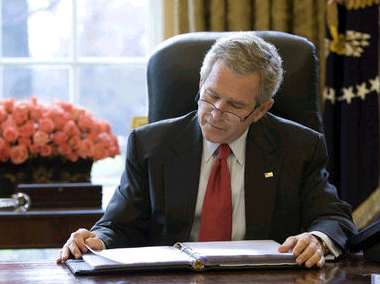
The Mogao Grottoes, 492 decorated caves hewn from a cliff between the 4th and 14th centuries C.E. 25 kilometers, are one of Buddhism's most revered shrines. The are found in southeast of Dunhuang, an ancient Silk Road way station in western China.
The current issue of Science magazine states:
In designating Mogao a World Heritage Site in 1987, UNESCO hailed it as a "unique artistic achievement" whose 45,000 square meters of murals include "many masterpieces of Chinese art." "No other place compares to Mogao," says Qu Jianjun, a geographer at the Cold and Arid Regions Environment and Engineering Research Institute (CAREERI) in Lanzhou.
That's why China is launching a new effort to safeguard the caves. Earlier this year, its National Development and Reform Commission approved a $38 million project to protect Mogao's fragile artworks from three major threats: salt leaching from groundwater, exhalations and body heat from droves of tourists, and shifting sand dunes. Later this year, CAREERI plans to open an environmental research center in Dunhuang, dedicated in large part to Mogao and directed by Qu.



















